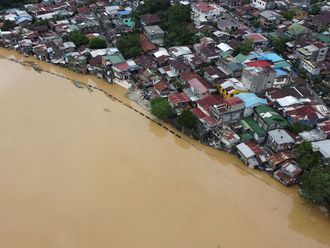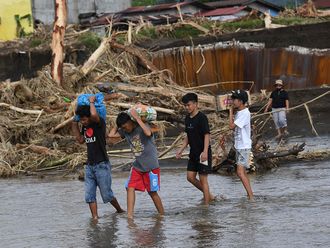
Manila: A group of Philippine doctors and health workers are fast-tracking their donations of free artificial limbs to poor and far-flung amputees with the help of a Philippine-made information technology that was developed for a telecommunication company, a local paper has reported.
Doctors from the University of the Philippines – Philippine General Hospital (UP-PGH) have started to use a new program called Amputee Screening via CEllphone NeTworking (Ascent), which allows social workers to get data from beneficiaries who need prosthetics, then send the data they have gathered to doctors and to the manufacturers of prosthetics, Lyne Abanilla, executive director of Physicians for Peace (PFP) Philippines, told the Manila Times.
With the new IT program, PFP Philippines can extend its services to physical therapy and prosthetics care that are needed by their beneficiaries, said Abanilla.
Ascent was developed by the Ateneo (University) Java Wireless Competency Centre for Smart Communications Inc, the server of the country's first-of-its kind mobile and web-based medical application.
With Ascent, rural health workers use mobile phones to send reports to a central server on a patient's profile, medical information, shots of the amputated limb, and contact details, said Abanilla, adding that doctors involved in the project get this data through a website which has access to the central server.
From the website, doctors send instructions on bandaging, rehabilitation, wound care and medications to facilitate prosthesis fitting and the immediate recovery of the amputees to the health workers' mobile phones.
"We interview patients to take all the data we need. Then we take a picture of the patients' amputated limb. Later, we encode the data in the computer. Doing this takes 20 to 30 minutes per patient," said Dr Josephine "Penny" Bundoc, PFP-Philippines' coordinator and programnme head.
"The process, now done by health workers using Ascent, is shortened. With Ascent, it is also easier for us to get additional information that we need on patients who live outside Manila," Bundoc explained.
The use of Ascent was recently pilot-tested in a mission that assisted 75 amputees at the Santo Nino health clinic of Manila's Tondo district. One patient had no artificial leg for 16 years.
"[During the pilot test] my immediate reaction was that we can use a system like this one in the US," said Gail Fekel, a physical therapist of the Physicians for Peace- United States who was at PFP-Philippines' mission in Tondo.
"With our partnership with Smart, I'm sure this project is going to be nationwide," said Abanilla.
PFP-Philippines, an international non-profit organisation, has been engaged in giving prosthesis to disabled poor people in the Philippines since 2005.












